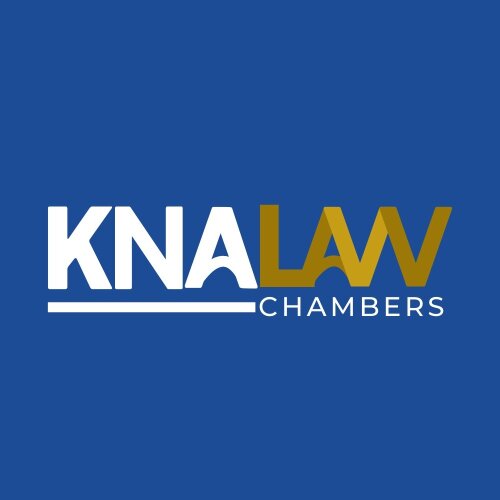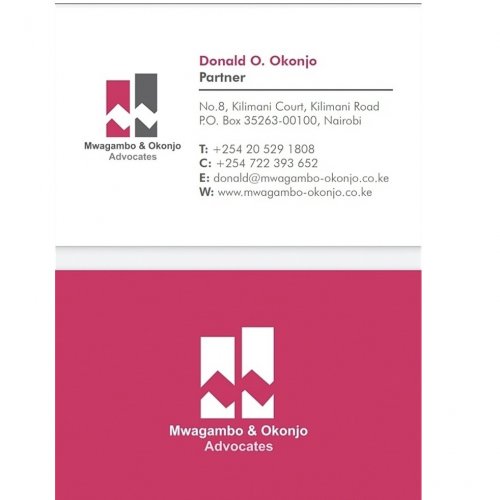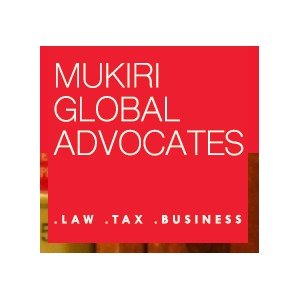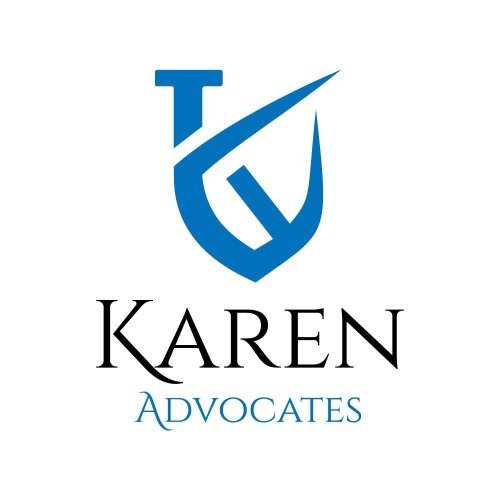Best Employment Rights Lawyers in Kenya
Share your needs with us, get contacted by law firms.
Free. Takes 2 min.
Or refine your search by selecting a city:
List of the best lawyers in Kenya
About Employment Rights Law in Kenya
Employment Rights Law in Kenya is designed to protect the interests and welfare of both employees and employers. It is governed by various legal frameworks including the Employment Act, 2007, the Labour Relations Act, 2007, and the Occupational Safety and Health Act, 2007 among others. These laws provide guidelines on employment contracts, wages, working hours, health and safety standards, and terms of employment to ensure fair and equitable treatment in the workplace.
Why You May Need a Lawyer
Individuals may require legal assistance in Employment Rights for several reasons, including:
- Understanding and negotiating employment contracts to ensure fair terms.
- Addressing cases of wrongful termination, discrimination, or harassment at the workplace.
- Seeking advice on complex issues like employee benefits, pensions, and severance packages.
- Ensuring compliance with employment laws and regulations to avoid legal penalties.
- Representing in disputes between employers and employees, either in court or through arbitration/mediation.
Local Laws Overview
Key aspects of local laws relevant to Employment Rights in Kenya include:
- Employment Act, 2007: This is the primary legislation covering various employment standards, rights, and duties of both employers and employees.
- Labour Relations Act, 2007: Focuses on the regulation of trade unions and the management of industrial disputes.
- Occupational Safety and Health Act, 2007: Provides for the health, safety, and welfare of persons employed in workplaces.
- Minimum Wage Regulations: Sets the minimum wage standards to prevent exploitation and ensure fair compensation for workers.
- Work Injury Benefits Act, 2007: Addresses compensation for work-related injuries and diseases.
Frequently Asked Questions
What is the legal minimum wage in Kenya?
The legal minimum wage in Kenya varies depending on the industry, location, and the worker’s role. It is reviewed periodically by the Wage Council.
Can I be dismissed without notice?
Employees in Kenya can be dismissed with notice or pay in lieu of notice, except in cases of gross misconduct where summary dismissal may occur without notice.
What are my rights during maternity leave?
Female employees are entitled to three months of paid maternity leave without forfeiting their annual leave. They also have the right to return to their positions after maternity leave.
How do I handle workplace harassment?
Report the incident to your HR department, or seek legal advice if necessary. Kenyan law protects employees against harassment and provides avenues for addressing such issues.
What constitutes wrongful termination?
Wrongful termination occurs when an employer breaches the terms of the employment contract or relevant laws in dismissing an employee.
Are there legal protections for casual workers?
Yes, casual workers are entitled to certain rights including fairness in hiring practices, wages, and work conditions.
How are disputes resolved in the workplace?
Disputes may be resolved through internal mechanisms, arbitration, mediation, or through the courts as provided for under relevant employment laws.
What are the standard working hours in Kenya?
The standard working hours are generally set at 52 hours per week, with variations depending on the sector and specific employment contracts.
What benefits am I entitled to as an employee?
Benefits vary but often include leave entitlements (annual, sick, maternity/paternity), pensions, and sometimes health insurance and housing allowances.
Can an employer change the terms of my employment contract?
Any changes to the employment contract must be mutually agreed upon by both the employer and the employee unless provided for by law.
Additional Resources
Here are some valuable resources and organizations that can provide assistance with Employment Rights issues in Kenya:
- Federation of Kenya Employers (FKE): Provides support and guidance for employers on labor laws and compliance.
- Central Organization of Trade Unions (COTU): Represents the interests of workers and can offer guidance in employment disputes.
- Ministry of Labour and Social Protection: Oversees employment standards and can be a resource for legal interpretations and complaints.
- Kenya National Commission on Human Rights (KNCHR): Offers advice and advocacy on human rights issues including labor rights.
- Law Society of Kenya: Provides a directory of practicing employment lawyers and useful legal resources.
Next Steps
If you believe you require legal assistance in matters of employment rights, consider the following steps:
- Identify the specific issue or concern related to your employment rights.
- Gather all relevant documents, such as your employment contract, pay slips, and any communication related to the issue.
- Consult with a qualified employment lawyer to discuss your situation and explore your options.
- Consider reaching out to relevant labor unions or employment rights bodies for further assistance and guidance.
- Proceed with the recommended course of action based on professional legal advice, whether it involves negotiations, mediation, or litigation.
Lawzana helps you find the best lawyers and law firms in Kenya through a curated and pre-screened list of qualified legal professionals. Our platform offers rankings and detailed profiles of attorneys and law firms, allowing you to compare based on practice areas, including Employment Rights, experience, and client feedback.
Each profile includes a description of the firm's areas of practice, client reviews, team members and partners, year of establishment, spoken languages, office locations, contact information, social media presence, and any published articles or resources. Most firms on our platform speak English and are experienced in both local and international legal matters.
Get a quote from top-rated law firms in Kenya — quickly, securely, and without unnecessary hassle.
Disclaimer:
The information provided on this page is for general informational purposes only and does not constitute legal advice. While we strive to ensure the accuracy and relevance of the content, legal information may change over time, and interpretations of the law can vary. You should always consult with a qualified legal professional for advice specific to your situation.
We disclaim all liability for actions taken or not taken based on the content of this page. If you believe any information is incorrect or outdated, please contact us, and we will review and update it where appropriate.
Browse employment rights law firms by city in Kenya
Refine your search by selecting a city.

















